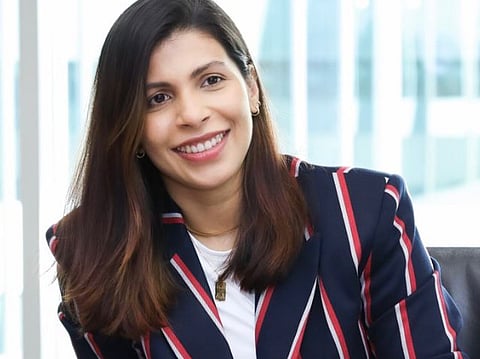UAE’s digital economy powers a new era of growth
How Dubai and the UAE Are redefining growth through innovation

A quiet revolution is unfolding across the Emirates as leaders pour resources into technology. Once reliant on oil, the UAE is aggressively building a “knowledge economy” centered on fintech, e-commerce, artificial intelligence and smart-city infrastructure. Today the digital sector already contributes roughly 12–13 per cent of the non-oil economy, and strategy documents explicitly aim to nearly double that share to about 20 per cent over the next decade. In the government’s vision for 2071, this transition underpins a diversified knowledge economy – “one of the best economies worldwide” built on scientific research, technology and innovation.
As Crown Prince Shaikh Hamdan Bin Mohammad has stressed, the UAE “accords tremendous importance to technological transformation as part of a strategic vision to establish itself as a hub for shaping the future”. Even at the city level, Dubai’s Economic Agenda D33 treats digitalisation as a core pillar, targeting some Dh100 billion per year in value from digital transformation and hoping to make Dubai a “global capital of the digital economy”.
The financial sector exemplifies the push to a digital future. Dubai last year rolled out a “Cashless Strategy” aiming to make more than 90 per cent of all transactions cashless by 2026. As part of this drive, government platforms now accept cryptocurrency: Dubai Finance signed a May 2025 MoU with Crypto.com so that citizens and businesses can pay fees in digital coins. “I extend my sincere appreciation to the Department of Finance for enabling new global partnerships that support the objectives of [D33] and reinforce Dubai’s status as a global hub for innovation,” said Abdulla Mohamed Al Basti of Dubai’s Executive Council, referring to the Crypto.com deal.
Regulators estimate that going cashless could add roughly Dh8 billion a year to Dubai’s GDP, and finance officials say the goal is to see “more than 90 per cent of financial transactions… cashless by 2026”. In short, Dubai’s leaders intend to use fintech and blockchain to cement the emirate’s edge in financial services.
Consumer markets are likewise booming online. Across the Gulf, e-commerce has surged: a February 2025 report noted that UAE online orders grew about 7 per cent in 2024 (against a 5 per cent regional average) as part of a broader 30 per cent jump in MENA e-commerce activity. Dubai in particular is now a magnet for tech entrepreneurs. The Dubai Chamber of Digital Economy reported that it supported 1,210 new “digital economy” startups in 2024 – a 120 per cent increase from the year before. Homegrown tech talent is also on the rise: under the government’s “Create Apps in Dubai” initiative, 1,333 Emiratis were trained in mobile app development fundamentals in 2024 (170 per cent more than 2023).
"Minister Omar Sultan Al Olama, who oversees AI and the digital economy, says these programs help realise the leadership’s vision. He highlighted that Dubai must “harness the potential of advanced technology sectors to drive [the emirate’s] economic growth,” and that leveraging cutting-edge tech will “reinforce Dubai’s position as a global leader in the digital economy."
Behind the scenes, massive investments in infrastructure are taking place. In April 2025 Du (a major Emirati telecom) announced a $544 million joint venture with Microsoft to build a hyperscale cloud data center in Dubai. Du’s CEO Fahad Al Hassawi called the agreement “a pivotal leap in our strategic goal to revolutionise the digital ecosystem of the UAE”. Dubai’s Crown Prince noted that the project “marks a significant investment in digital infrastructure, reinforcing Dubai’s leadership in adopting the latest technologies, innovations and digital services”.
In parallel, Oracle said in January 2025 that it would increase investment in its Abu Dhabi cloud region by fivefold to meet rapidly growing demand. Telecommunications firms are also busy: in late 2024 the e& Group (formerly Etisalat) announced an AI Innovation Lab for the UAE, partnering with a local tech startup. Haitham Abdulrazzak, e& UAE’s chief business officer, hailed the lab as “a landmark moment as the UAE establishes itself as a global leader in AI” and said it will deliver “groundbreaking solutions that will drive economic growth and bolster the UAE’s global competitiveness”.
Even government services have gone high-tech. In the UN’s latest e-government report (2025), the UAE ranked among the world’s top 10 for digital government and was #1 in the Arab world. Notably, the country scored a perfect 1.000 on the UN’s Telecommunications Infrastructure Index and led all nations in several online-services sub-indexes. The government’s own digital platforms reflect this: a generative-AI platform called “U-Ask” now handles routine citizen questions, while the Federal Digital Network (FedNet) uses AI and advanced tools to streamline service delivery.
The UAE Pass national ID provides a unified login for hundreds of services. In practice this means Emiratis and residents can renew passports, pay bills or book medical appointments on an app “with no queues, no paperwork and no wasted time”. As one analysis noted, the country has “redefined how governments serve people” through smart apps and one-stop portals.
Looking ahead, the UAE’s digital momentum shows no sign of slowing. Analysts estimate that artificial intelligence alone could add on the order of $96 billion to the economy by 2030 – about 13–14 per cent of GDP – assuming current strategies succeed. Under its Centennial 2071 vision, the UAE plans to keep building future skills and technology capacity to become “the best country in the world” by the nation’s next centennial.
By combining smart regulations, global partnerships, and ongoing private investment (from cloud giants to local startups), the Emirates aim to cement their status as a regional and global tech hub. In sum, Dubai and the UAE have put digital transformation at the heart of development, and as that strategy plays out, the Gulf nation looks poised to export not only oil – but innovation as well.


